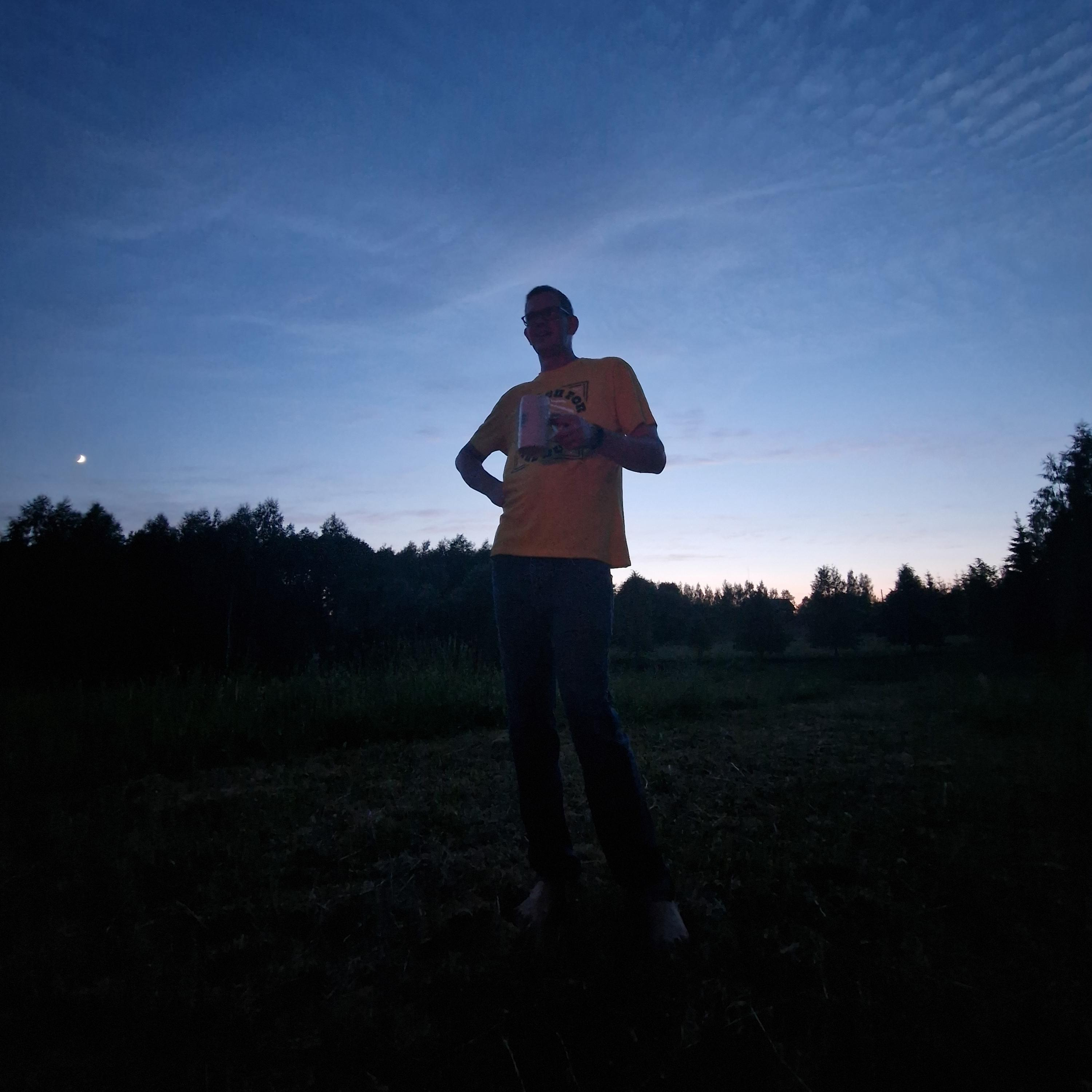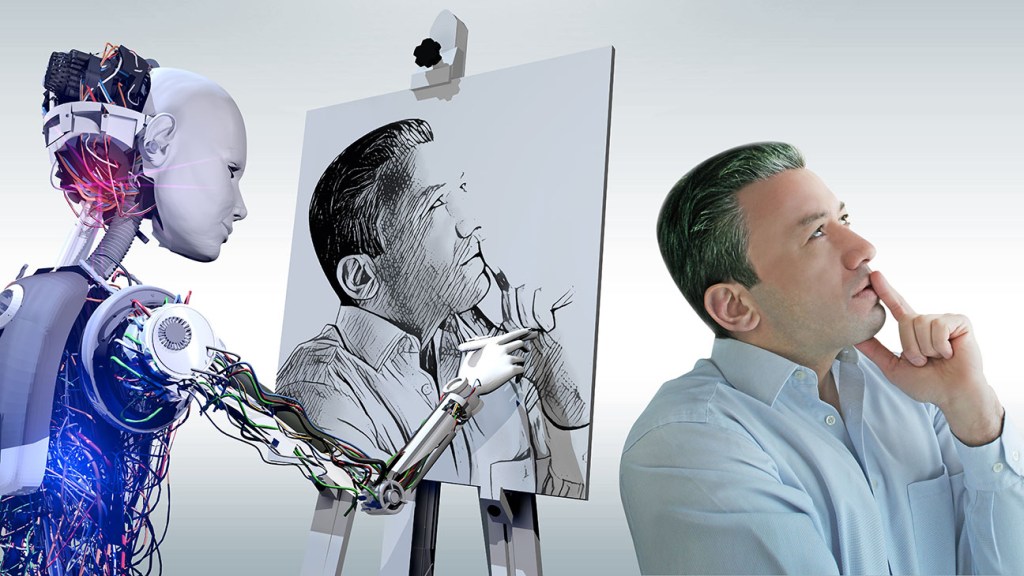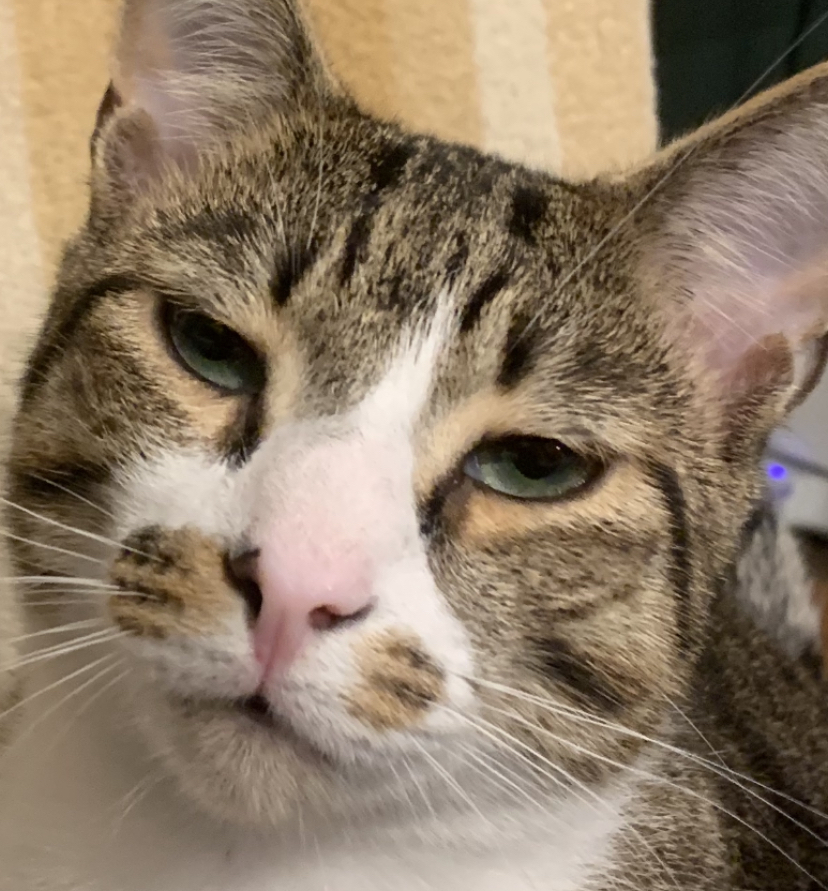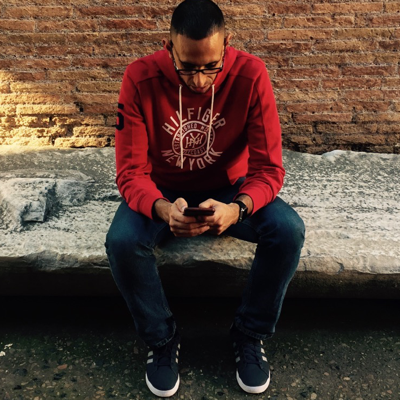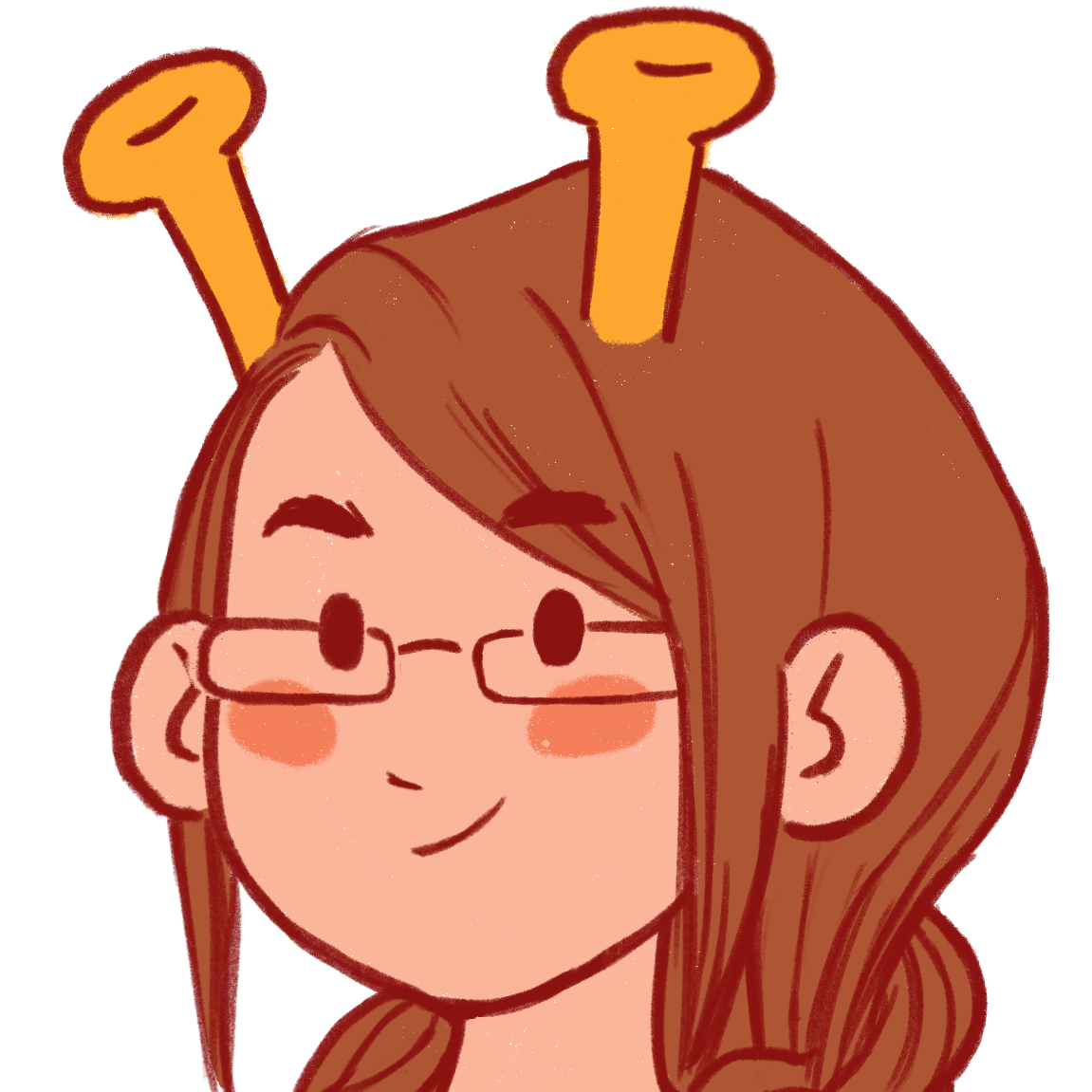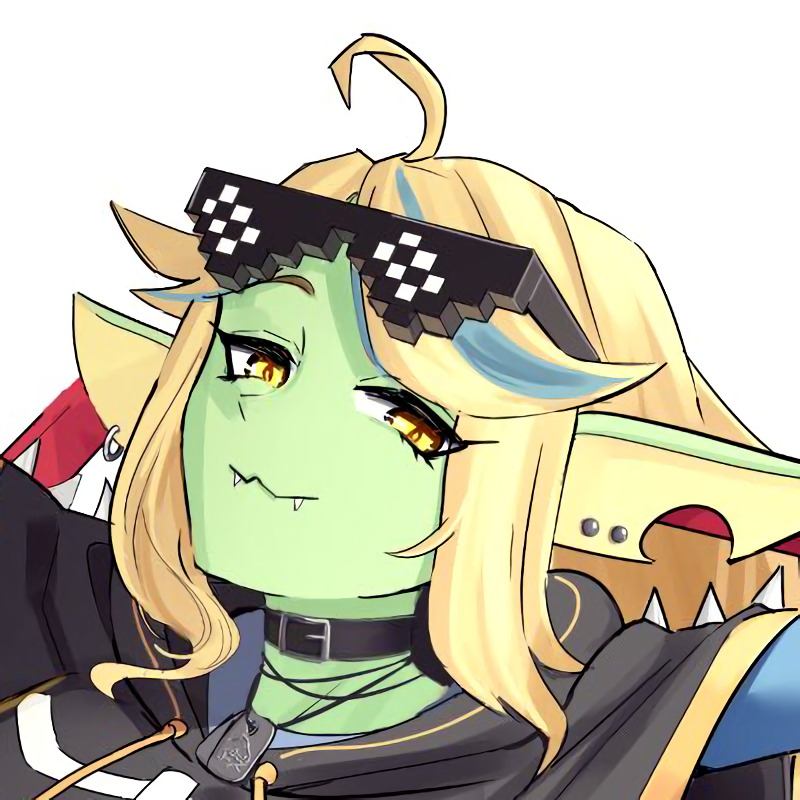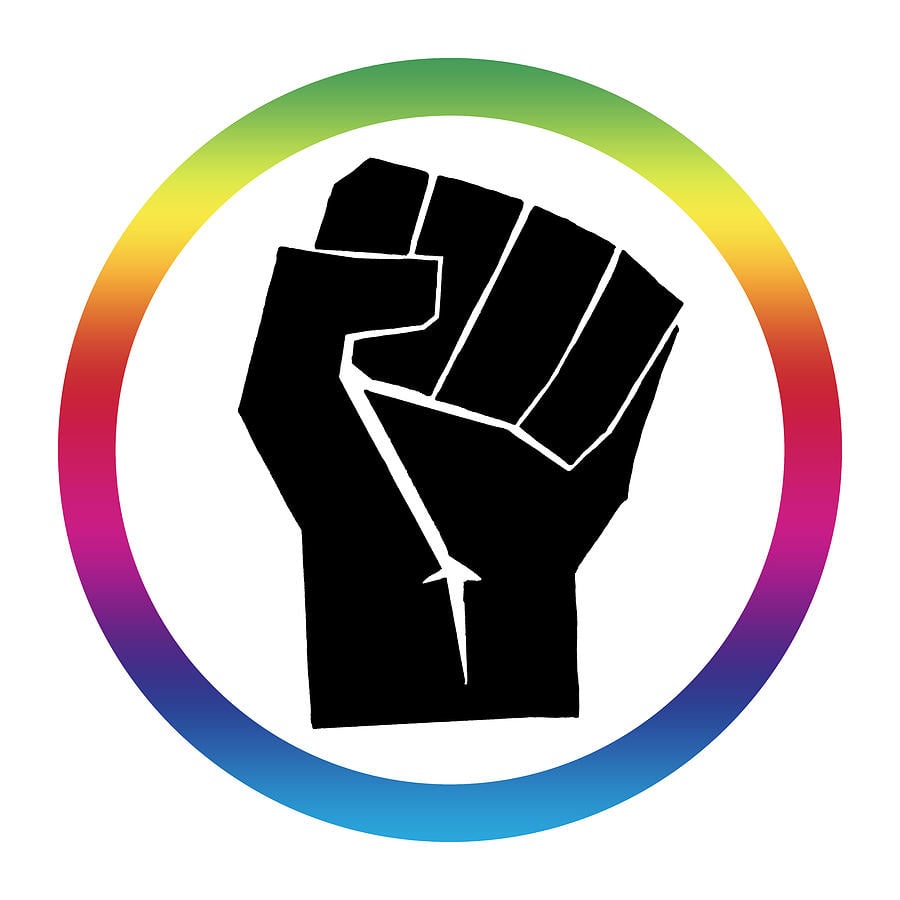Don’t post the entire article in the OP, please. You’ll end up getting C&D’s sent to your instance admins if publishers keep seeing this, because it’s - ironically enough in this context - copyright infringement.
Just post a snippet to stay within fair use. Don’t ruin Lemmy for all of us over something so silly.
No, that’s not going to happen. It’s easier for people to read if they post the whole thing.
Linking to it is fine, but OP had copy/pasted the full text of the article into the body of the post. It looks like he’s since edited it out.
It doesn’t happen too often, but I’ve seen some websites get in trouble for doing that.
Or, even better, use AI to generate a tldr.
Isn’t that what the autotldr bot basically does?
Exactly
couldn’t help but lol at this quote:
US copyright law is designed to adapt to the times.
“To the times Disney pays people off enough…”
Oh it does adapt the time the copyright is valid.
This doesn’t change much because of a simple difference: This was an AI product put in wholesale.
There was no human intervention in (visually) creating this product, thus no human can claim copyright.
Studios aren’t gonna do this when replacing some of their writers, because AI may not be good enough yet. Instead, it’ll be a smaller team, they’ll do the edits, and they can claim copyright.
This only really matters If AI advances to the point where we can completely create a full movie or TV show from scratch with just purely prompting, which, currently, we can not.
A spoof of Seinfeld runs 24/7 from only AI input after the initial prompt. It is bad, but exists. Depending on your quality standards, we are there. https://en.m.wikipedia.org/wiki/Nothing,_Forever
That’s what I see likely. Writers will eventually use this as a tool. Say setup a scene and generate 40 versions. Pick the best one, edit it, feed back what you improved, generate another 40…
We are still reading Shakespeare and I think part of the reason was how he wrote those plays.
Write the scene, pass to actors, actors have notes, rewrite scene, pass to actors, have actors act out scenes, make changes, run changes by actors, rewrite scene, perform scene, watch audiences (are they laughing at the jokes? Are they sad when they are supposed to be sad?), make edits,…
He did it like a collaborative activity and gradual refinement. Almost none of his plays have an official indisputable version, instead we have multiple versions with slight differences.
Stop worrying about your jobs writers, this is a tool. Use it.
It’s only a tool for lazy, shot by, hack writers. Like the writers for Big Bang or any kids show by Disney.
Why would a real writer need AI to steal words from others? Do you think Neil Gaimon needs help from a shitty program to write? Or any other high caliber writer? No. Because AI is for untalented artists and writers. They are the ones getting terrified that it might replace them.
Which speaks to their skillsets.
The thing is there was uncountable amout of people intervention. AI art is derivative work achieved via mathematical means.
Not in the copyright sense.
Yes, there were millions of people’s work that was in the training data that was used to make whatever AI program created those AI images, but (at least right now) that isn’t considered for legal ownership.
The US Copyright Office is taking the stance that there must be human effort that can be seen/pointed to in the final product directly in order to count as an “Author”.
Think about that guy with the monkey taking a photo, and how that got into the public domain. Just because the company selling the camera “created the camera used to take the photo” (made the AI model) or because someone using the camera “set their own settings for the photo to be its best quality” (typed in a proper prompt for the model) doesn’t mean that either party “owns” that image.
That whole paradigm could maybe change if/when AI LLM programs get seriously regulated, but even so, I personally don’t think that changes the chain of ownership, nor should it.
So it’s the same as when the film industry got started?
The element of human creativity derives from the Constitution.
“To promote art the author has the exclusive right.” Something like that.
By that logic, all human art is derivative work achieved via biological means. No artist works in a vacuum. Everything an artist sees subtly influences their style.
This is why “intelectual property” is such bullshit
The work itself must be a product of creativity, reduced to a tangible medium.
The code that makes the art, the prompts, could be copyrighted. But not the output.
You didn’t create it so why the hell should you be able to copyright it?
seems a pretty easy solution here. just say you’ve written it… no reliable software exists for proving text is AI generated.
I changed some words. Now it’s mine. I dunno, error, search and replace “Mike” to “Michael”.
Talk about an inaccurate headline. The conclusion here isn’t that AI art can’t be copyrighted, it’s that AI cannot be a copyright holder. But it’s AI, so we can’t actually expect anyone to pull their head out of their ass and give it enough thought to write an article that isn’t garbage.
Instead we have yet another thread about this case in which no one actually has any idea what the ruling was. Very informative.
From the opinion;
Both parties have now moved for summary judgment, which motions present the sole issue of whether a work generated entirely by an artificial system absent human involvement should be eligible for copyright. See Pl.’s Mot. Summ. J. (Pl.’s Mot.”), ECF No. 16; Defs.’ Cross-Mot. Summ. J. (“Defs.’ Mot.”), ECF No. 17. For the reasons explained below, defendants are correct that human authorship is an essential part of a valid copyright claim, and therefore plaintiff’s pending motion for summary judgment is denied and defendants’ pending cross-motion for summary judgment is granted.
AI being the copyright holder was never even in question. Some guy tried to register AI art in his company’s name, using the AI as the author of a work for hire. The Court found that he couldn’t get the copyright as a work for hire since no copyright existed in the first place.
What if a monkey made art, would that be copyrightable?
No. That is in the article.
In another case, the a federal appeals court said that a photo captured by a monkey can’t be granted a copyright since animals don’t qualify for protection, though the suit was decided on other grounds. Howell cited the ruling in her decision. “Plaintiff can point to no case in which a court has recognized copyright in a work originating with a non-human,” the order, which granted summary judgment in favor of the copyright office, stated.
This limitation is too easy to get around. Have AI generate a picture. Take a photo of that picture and destroy the original. Copyright is now owned by the photographer. Have an AI write some music, change one note of that music and call in your arrangement of that piece, destroy the original music, and only your arrangement that you have a copyright on exists. etc.
As a photographer that knows copyright law, I assure you flat-art copying a work of art does not make it yours.
The thing I’m seeing that does sort of skirt the issue is that it’s very obvious a lot of YouTubers have jumped on AI image generation to produce static images instead of drawing the images themselves or farming it out to an artist on Fiverr or something. So if they want “evil Jerome Powell with flames in his eyes” they hand it to the AI, it spits something out, and into the video it goes, to be published on YouTube as a memey splash image in the video.
Now that it’s in the video, along with all the other clear acts of human creativity that form a video, it’s sort of “washed” in the money laundering sense, and I don’t see how you legally separate that image from the video in a way that makes the image ineligible for copyright. I don’t see a court being flummoxed by that, at all. If you filch the image from the original video, or try to pull excerpts from the video featuring Evil JPow, you’re in violation of copyright, and we’re on pretty solid, well established legal ground with that. At the very least, you are not completely in the clear to just yank that image for yourself.
So while the original raw image of Evil Jpow that the AI spit out was not eligible for copyright by itself, now it is as part of a larger work, open and shut.
Near the end of the article it affirms pretty much that, saying, "An application for a work created with the help of AI can support a copyright claim if a human “selected or arranged” it in a “sufficiently creative way that the resulting work constitutes an original work of authorship,” [as quoted from the copyright office]
My quote is a bit messy there (i’m quoting the article who is quoting the copyright office) but you get the point.
The raw AI output, assuming no human was involved, cannot be copyrighted, but as soon as the AI output is somehow arranged into a larger work by a human, that changes everything.
So yeah, a bit of arranging, some editing, and the completely AI generated footage can be copyrighted all day. At the very least there would be a court case there.
“evil Jerome Powell with flames in his eyes” Maverick of Wall Street? lmao
You own the copyright of your photo, AI flat art has no copyright, therefore the only copyright is yours.
When you copy a public domain work, you can copyright your original contributions.
So, for example, if you create a picture book of hamlet, you’d own the layout of the text on the page, but not the text of hamlet itself.
The Judge is right. AI is not a living citizen.
That’s great! It means artists can continue to use AI art for projects they don’t intend to sell, and Hollywood, which already has too much power, still relies on others.
Artists can still make money and copyright their stuff. You just can’t use exclusively AI to create the images. Cleaning up an AI generated image count as artistic work. Color correct, add missing fingers, make the eyes point the same way, remove background monstrosities. It all adds up.
Unfortunately this also goes for Hollywood. They can generate the bulk of the work and have one guy do the editing and suddenly they own the edit.
The real losers in this are the people that generate images with no modifications and post it as is while pretending that they are doing art.
You are correct. Hollywood will simply change up a couple things and then use the assets.
However, I‘m still undecided about how I think about whether generating AI art should count as Human-generated or not. On one hand, people can spend hours if not days or week perfecting a prompt with different tools like ControlNet, different promptstyles and etc. On the other hand, somebody comes up to midjourney, asks for a picture of a dragon wearing a T-Shirt and immediately gets an image that looks pretty decent. It’s probably not exactly what they wanted, but close enough, right? AI gets you 90% there what you want, and the other 10% is the super-hard part that takes forever. Anyway, sorry for dumping my though process from this comment chain on here xD
That latter case likely wont be copyrightable, but the former can start to meet this criteria mentioned in the article:
An application for a work created with the help of AI can support a copyright claim if a human “selected or arranged” it in a “sufficiently creative way that the resulting work constitutes an original work of authorship,” it said.
The way I read that, the more instruction you give to the composition of the image (ie, how detailed and descriptive you are with your prompt) the better claim you would have to copyrighting the resultant work.
I think the mistake lots of people are making is that all AI generated art is the same and should all be treated the same. Which is likely not going to be the case. And Copyright rulings are mostly done on a case by case bases, unless there is significant change this will likely still hold true and so one ruling on some AI generated art might not result in the same ruling for a different piece created in a different way with different effort.
What this case shot down is the claim that AI can claim copyright on a works as an AI is not human and copyright only applies to humans. Which is the same stance courts have tend before with content created by animals.
That latter case likely wont be copyrightable
It is if you don’t say it’s AI generated or you lie about how much human input it required which would be impossible to prove false.
Not impossible. If you generate something with AI and claim you created it yourself you can easily be asked to reproduce a similar works again. If you don’t have the skills to do so then that is fairly big evidence that you don’t hold the copy right over it. If you do have the skills, then you are far less likely to purely lean on AI generated works without putting in some more creative stances on those works, even if you are using AI as part of creating those works.
If you say you did use AI you should be able to show how much effort you are putting into creating the images, how you write your prompts, how you correct mistakes etc. All that is a skill you need to learn and it should not be so hard to show someone you do have that skill or not.
Are these definitive? No, not much evidence is definitive, but a collection of various things can help paint a picture. So there are ways to you can show if someone is likely to be lying about how much effort they put into some work. Which makes it distinctly easier than impossible to prove their claims false or not.
If you generate something with AI and claim you created it yourself you can easily be asked to reproduce a similar works again.
Asked by whom exactly? The Copyright Office? Are they going to ask for prove from every artist that requests registration for a work?
If you say you did use AI you should be able to show how much effort you are putting into creating the images
Or you can lie in your request. From the Compendium of U.S. Copyright Office Practices:
“As a general rule, the U.S. Copyright Office accepts the facts stated in the registration materials, unless they are contradicted by information provided elsewhere in the registration materials or in the Office’s records.”
Sorry, I am firmly in the camp where that isn’t art. The prompt writing can be a literary work but the result isn’t a work of art. You set up the environment that allowed the image to exist but you didnt make the image.
But the treatment of photographs in the decision fits your description. The photographer sets up the environment that allowed the image to exist but it’s the camera that makes the image. The judge held that was protectable because the image represents the human’s mental conception of the scene. It’s not a ridiculous stretch to consider AI to be merely a camera for the prompt-writer’s mental conception. I am certain this argument has been or will be tried in court. The IP owner industry is far from done litigating this topic.
Plenty of things that take weeks of work aren’t art.
Definitely. Ask anybody who finally evacuated the last thing they ate from Olive Garden!
Yeah while this suit covers a very specific scenario, a large majority of AI driven content does have human interaction and does qualify for copyright.
Even just a draft, fed into an AI finishing system, has some human interaction. Nothing is going to stop the AI revolution.
Good.
deleted by creator
deleted by creator
Some AI work is created with a simple prompt, but the best stuff uses lots of in painting and out painting and adjustments. That would be copyrightable, there’s lots of human control beyond a prompt, there are lots of cool videos of the process on YouTube. By the time AI will be able to generate full processes, videos, storylines, voices, etc, without human intervention, we won’t need the movie studios either. I’m hoping we reach that in 3 years.
It looks like the key in the ruling here was that the AI created the work without the participation of a human artist. Thaler tried to let his AI, “The Creativity Machine” register the copyright, and then claim that he owned it under the work for hire clause.
The case was ridiculous, to be honest. It was clearly designed as an attempt to give corporations building these AI’s the copyrights to the work they generate from stealing the work of thousands of human artists. What’s clever here is that they were also trying to sideline the human operators of AI prompts. If the AI, and not the human prompting it, owns the copyright, then the company that owns that AI owns the copyright - even if the human operator doesn’t work for them.
You can see how open this interpretation would be to abuse by corporate owners of AI, and why Thaler brought the case, which was clearly designed to set a precedent that would allow any media company with an AI to cut out human content creators entirely.
The ruling is excellent, and I’m glad Judge Howell saw the nuances and the long term effects of her decision. I was particularly happy to see this part:
In March, the copyright office affirmed that most works generated by AI aren’t copyrightable but clarified that AI-assisted materials qualify for protection in certain instances. An application for a work created with the help of AI can support a copyright claim if a human “selected or arranged” it in a “sufficiently creative way that the resulting work constitutes an original work of authorship,” it said.
This protects a wide swath of artists who are doing incredible AI assisted work, without granting media companies a stranglehold on the output of the new technology.
I wonder could you interpret this as AI created movie script isn’t copyrightable but the actual filmed movie is. That would invite some weird competition, like we’ve seen over the years with the copycat movies.
I wonder could you interpret this as AI created movie script isn’t copyrightable
This first but I don’t think that is how it can be interpreted like that. Looks like it comes down to how much human input was used to guide the AI in the works. The more the human guided the AI the more they have a claim to the copyright is how I read that. Not just all AI content cannot be copyrighted. Which IMO seems like a fair way to apply copyright to AI generated content.
The latter part is basically already handled - look at any film created from a public domain works, Shakespeare plays being a big example here. I would expect non-collectable AI works adapted to film to to be handled the same way. Though I suspect that to create any good movie script with AI you would need significant human input which could lean towards to script having a stronger copyright claim by those that guided the AI.
Yes , but let’s say Marvel writes the next Avengers movie with AI. Somebody else could come along and make their version of it. They’d need their own characters though, because those are copyrighted by marvel comics.
they generate from stealing the work of thousands of human artists.
Has this been litigated yet?
Give them time to lobby and get a friendlier judge and try again.
If a human uses AI to create a story and then edits and tells it in greater detail the new work would be copyrighted via the editor’s transformative act. This ruling is not a win for the WGA or other creatives that don’t want to use AI.
AI will just become our ghost writer, which is a practice as old as writing.
